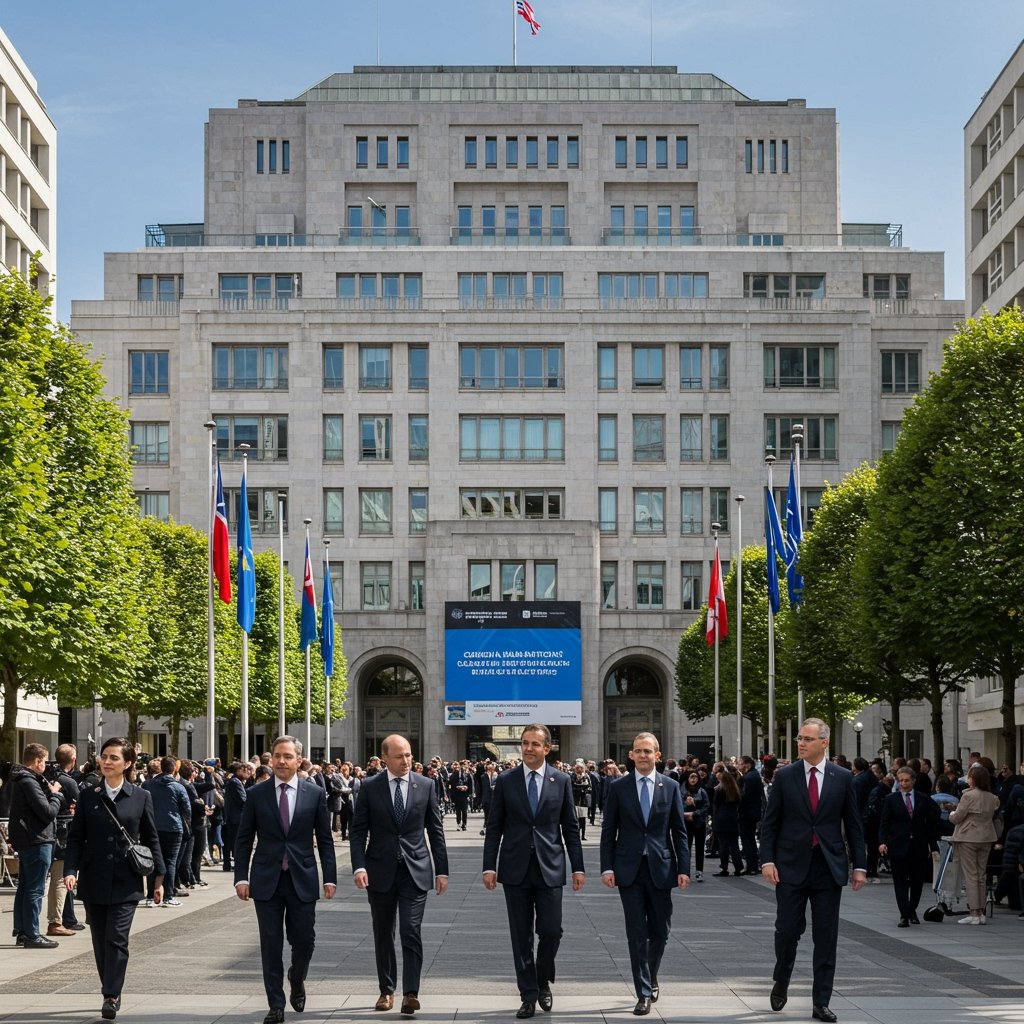Geneva Hosts Crucial Final Round for Landmark Digital Trade Accord
Geneva, Switzerland – The global trade landscape is poised for a potentially transformative shift as high-level negotiators convene in Geneva this week for what are being described as the decisive final intensive talks on the proposed Global Digital Trade Accord. This ambitious and complex agreement aims to establish a unified international framework governing critical facets of the digital economy, addressing issues that have rapidly emerged with the exponential growth of cross-border digital commerce.
The stakes are exceptionally high, with participants working towards a targeted signing date later this month. Success in these final negotiations would mark a significant milestone in adapting international trade rules to the 21st century’s digital realities. Failure, conversely, could leave a void, leading to a fragmentation of regulations across different jurisdictions, potentially hindering innovation and global economic growth.
Key Pillars of the Proposed Accord
The Global Digital Trade Accord targets several pivotal areas essential for the seamless functioning of the digital economy. Foremost among these is the regulation of data flow. In an era where data is often described as the new oil, establishing clear, predictable rules for how data can be transferred, stored, and accessed across borders is paramount. Businesses, from multinational corporations to small e-commerce startups, rely heavily on the ability to move data freely and securely.
Another contentious but crucial area is cross-border digital services taxes. Numerous countries have moved unilaterally or regionally to implement taxes on digital services, leading to concerns about double taxation, fairness, and potential trade barriers. The Accord seeks to find a multilateral solution that provides clarity and prevents retaliatory measures.
Furthermore, the agreement delves into intellectual property rights in the digital realm. Protecting patents, copyrights, and trademarks in an environment where digital content and innovation can be easily replicated and distributed globally is a complex challenge. The Accord aims to strengthen protections and enforcement mechanisms appropriate for the digital age.
A Convergence of Global Power Players
The talks in Geneva are characterized by the presence of key governmental and corporate power players, underscoring the broad impact of the potential agreement. Leading the delegations are prominent figures such as the US Trade Representative, bringing the perspective and economic weight of the world’s largest economy; Minister Tanaka of Japan, representing a nation at the forefront of technological innovation and digital services; and EU Trade Commissioner Dubois, speaking for the European Union, a major digital market and a significant voice in global regulatory discussions.
Their participation highlights the political will at the highest levels to reach a consensus. However, the negotiations also involve significant input from the private sector. Executives from influential companies like AlphaTech and GlobalConnect are reportedly present, engaging with negotiators. Their involvement is critical, as the implementation and practical effects of the Accord will directly impact how these companies operate globally. Their insights into the technical, logistical, and business realities of digital trade are invaluable to crafting a workable agreement.
Navigating Remaining Hurdles
Despite the progress made in previous rounds, significant sticking points reportedly remain, threatening to derail the final push. One of the most challenging issues is related to state data localization requirements. Many countries are increasingly mandating that data generated or handled within their borders must be stored locally, often for security or privacy reasons. While proponents argue these measures are necessary for national interests, critics contend they create costly barriers for businesses, fragment the internet, and hinder the free flow of information essential for global digital services. Reconciling these differing views is a major focus of the current talks.
Another area requiring resolution is the structure and effectiveness of enforcement mechanisms. A trade agreement, no matter how well-intentioned, is only effective if its provisions can be reliably enforced. Designing a dispute resolution system and ensuring compliance in the fast-evolving digital space presents unique challenges compared to traditional trade in goods.
Delegates are engaged in intensive, potentially round-the-clock negotiations, seeking compromises that can bridge these divides and secure a final text acceptable to all parties. The pressure is mounting as the targeted signing date later this month approaches.
The Expected Impact
The successful conclusion and implementation of the Global Digital Trade Accord are expected to significantly reshape global digital commerce. A harmonized set of rules could reduce uncertainty for businesses, lower operational costs associated with navigating disparate national regulations, and encourage greater investment in digital infrastructure and services. It could level the playing field for companies of all sizes seeking to participate in the global digital economy.
Beyond immediate commercial benefits, the Accord is also anticipated to influence future international trade frameworks. As trade increasingly involves digital elements, the principles and precedents set by this agreement could become foundational for future multilateral and bilateral trade negotiations.
However, the outcome is far from guaranteed. The complex interplay of national interests, regulatory philosophies, and industry demands makes these final talks particularly challenging. The world watches Geneva, hopeful that negotiators can deliver an agreement that paves the way for a more open, predictable, and prosperous digital future.





